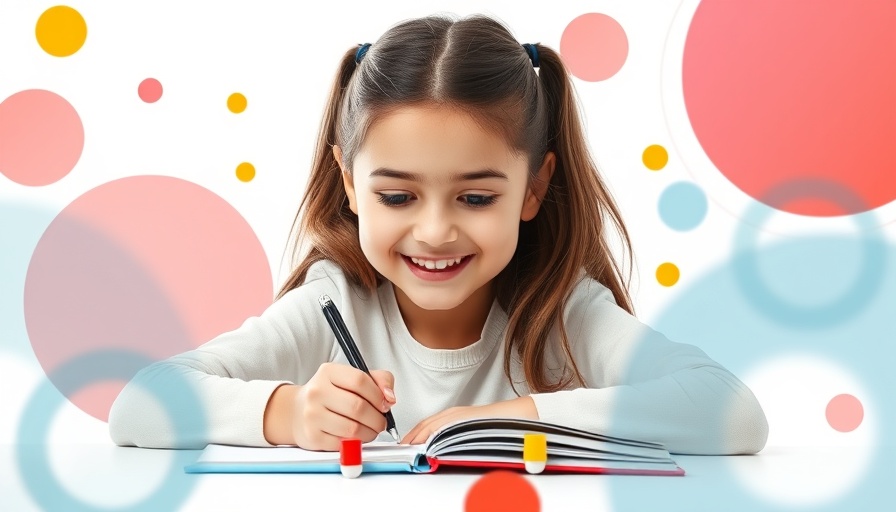
Understanding the Importance of Addressing ADHD Early
Attention Deficit Hyperactivity Disorder (ADHD) is a prevalent neurodevelopmental disorder that impacts millions of children worldwide. Early diagnosis and intervention play crucial roles in managing ADHD effectively. Research indicates that families who adopt comprehensive ADHD strategies often experience marked improvements in their children's behavior and academic performance within just 6–8 weeks. Such timely interventions not only enhance the child's learning capabilities but also build their confidence and emotional well-being.
Play-Based Activities: A Key to Development
Play is an integral aspect of development for preschoolers, especially those with ADHD. Engaging in play-based activities allows children to express themselves, cultivate essential social skills, and alleviate anxieties. According to Dr. Kathryn L. Keough from the Child Mind Institute, pretend play helps children develop their imaginative capabilities while also providing parents an opportunity to engage in their child's world. This interactive experience fosters joy and strengthens parent-child bonds, which is vital for children’s mental health. Implementing structured play can also assist in managing symptoms of ADHD by providing a channel for energy and creativity.
Incorporating Cognitive Behavioral Therapy Techniques
Cognitive Behavioral Therapy (CBT) is a powerful tool for assisting children with ADHD. CBT for kids focuses on teaching them about their emotions and behaviors and guides them in developing coping mechanisms. Additionally, parent-child interaction therapy (PCIT) can strengthen the parent-child relationship and enhance a child’s self-regulation skills. By learning these strategies, children can improve their executive functioning abilities, which are often challenged by ADHD.
Community Support and Resources
Families seeking assistance can benefit from resources offered by organizations like the Child Mind Institute. The institute provides comprehensive symptom checkers, articles, and expert advice tailored to various childhood disorders, including ADHD. Utilizing these resources can empower parents to navigate the complexities of ADHD and advocate effectively for their children’s needs. Furthermore, connecting with local mental health services can provide additional avenues for support.
Future Insights: The Path Forward for ADHD Support
The conversation surrounding ADHD is evolving, driven by ongoing research and public awareness. There's a growing understanding of the need for individualized approaches to treatment and support. Future strategies will likely embrace a multi-faceted approach addressing not only the child’s immediate behavioral challenges but also the support systems surrounding them, such as educational environments and familial dynamics. By investing in comprehensive support mechanisms, society can work towards reducing the stigma associated with ADHD and fostering an inclusive environment for affected children.
The journey to understanding and supporting a child with ADHD can be arduous. However, recognizing the crucial role of early intervention, play-based activities, and community support can lead to substantial improvements in their lives. To learn more about ADHD and available resources, explore options with the Child Mind Institute and engage with your local mental health services.
 Add Row
Add Row  Add
Add 




Write A Comment